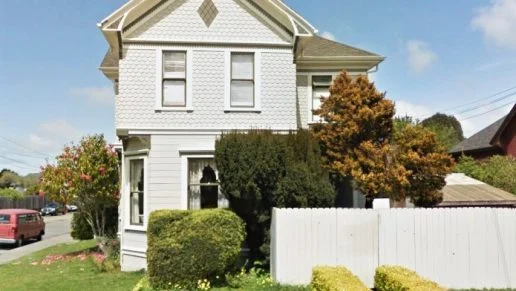Requesting a call is the first step toward recovery. Our team is here to help you 24/7.

Medical Wellness Center

Humboldt Recovery Center serves as the largest and oldest residential program on California’s North Coast, helping individuals achieve meaningful drug-free lives since 1972. Their evidence-based addiction program uses a specialized therapeutic community approach throughout 7 home-like locations, separated by gender with a counselors office in each. Licensed and certified by the Department of Health Care Services, their residential programs provide treatment for up to 57 men and women at a time.
Humboldt Recovery Center’s houses are neat, clean, and fully furnished, located in safe residential neighborhoods with a home-like feel. They offer private or shared bedrooms for up to 2 clients per room, offering ample closet and dresser space for personal belongings. Each home has a shower and bathtub, televisions in shared living areas with cable access, telephones for client use, space for reading and studying, computer and internet access for job, education, or resume work, and a fully equipped kitchen.
Humboldt Recovery provides a phase-up treatment model, designed to give clients more freedom and responsibility as they progress over a 90 day period. Following residential care, clients can participate in 9 months of ongoing outpatient treatment with aftercare services.
Upon entering treatment, clients are given writing assignments, addressing underlying issues that may contribute to their substance use. When clients wish to phase up, they submit a written request to the rest of the community, who will ask questions and make recommendations to counseling staff after an initial 2 week period called the blackout phase. As clients work their way through 3 or 4 phases, depending on the severity of their circumstances, they typically spend 2 weeks-1 month in each, allowing more time away from the treatment facility for outings, work, or school as they advance, sometimes with chaperones or support persons.
Treatment services at Humboldt address issues including marriage and family relationships, parenting classes, vocational or education assistance, medical care, co-occurring mental health concerns, and housing and transportation challenges.
Residents who are able bodied and have shown good progress in their recovery are encouraged to seek employment. Addiction counselors are trained to provide vocational support, and Humboldt has established many connections in the business community that often help with job placement. Their educational services assist clients in learning how to read, obtaining a GED, finishing or getting into college, and job skills training.
Nutrition and fitness are a big part of their program, with fitness rooms on-site and nutritional counseling throughout treatment, with healthy meals provided. Medication-assisted treatment (MAT), with non-narcotic medications are permitted, and may be prescribed by a physician or psychiatrist and taken under supervision. Humboldt also assists clients in obtaining any needed medical or dental care. Additionally, clients are encouraged to reconnect with their children and families, who are allowed to visit frequently and join outings and mealtimes.
Mandatory and random drug and alcohol testing is conducted at least 3 times per week for residential clients, as well as for clients who are participating in their alumni association.
Humboldt Recovery Center offers robust aftercare services through a 9 month program, free to clients in residential care as part of their treatment. Once clients have completed their residential phases, they are admitted into the alumni association, which provides access to aftercare counseling and social and recreational sober activities. Their alumni association meets on a weekly basis, 2 times per week for group support meetings.
Have Questions? Give Us a Call.